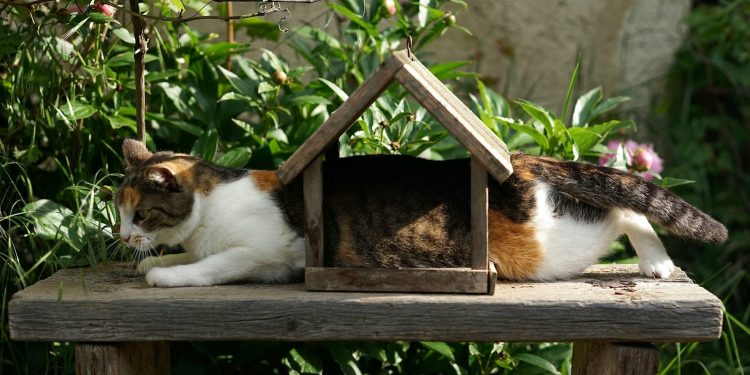When most people think of pet insurance, they imagine coverage for cats and dogs—the traditional companions that many households embrace. But what about those unique pets, like parrots, iguanas, ferrets, or even pot-bellied pigs? Exotic pets have found a special place in many homes, captivating owners with their unique personalities, vibrant colors, or peculiar habits. However, owning an exotic pet also means facing unique healthcare challenges, which can be both medically complex and costly. This article delves into the ins and outs of pet insurance for exotic pets, helping you understand what coverage is available and what it can mean for you and your cherished companion.
The Growing Popularity of Exotic Pets
The past few decades have witnessed an increased interest in exotic pets. From reptiles to birds, many people are now turning to less conventional pets that offer a different kind of companionship. Exotic pets bring a sense of wonder into a home, often sparking curiosity about their natural habitats and needs. However, along with this fascination comes the responsibility of providing appropriate care—something that can be significantly more challenging compared to the care required by cats or dogs.
Exotic pets often require specialized diets, specific temperature settings, and, in some cases, highly specialized veterinary care. These factors make owning an exotic pet both rewarding and challenging. Veterinary visits for exotic pets can quickly add up in terms of cost, as exotic animal veterinarians often have more advanced training and may need to perform specialized procedures. Pet insurance can offer a way to manage these costs and ensure your exotic companion receives the best possible care.
What is Covered in Exotic Pet Insurance?
Exotic pet insurance can differ significantly from standard pet insurance in terms of what is covered. Depending on the provider and the type of policy you choose, the following elements are typically covered under exotic pet insurance:
1. Accidents and Illnesses
Just like cats and dogs, exotic pets are susceptible to accidents and illnesses. Whether your parrot accidentally injures its wing or your iguana develops a respiratory infection, medical emergencies can arise unexpectedly. Most exotic pet insurance plans offer coverage for accidents and illnesses, which can include diagnostics, treatments, surgeries, and hospitalizations.
However, it’s essential to remember that coverage specifics may vary. Some policies may have exclusions for pre-existing conditions or certain health issues commonly found in specific species. Always read the fine print to ensure the policy aligns with your exotic pet’s unique needs.
2. Diagnostic Testing
Exotic pets can present unique health challenges, and diagnosis is not always straightforward. Birds, reptiles, and small mammals often hide symptoms of illness until the condition becomes serious. As a result, diagnostic tests—such as blood work, imaging, or even specialized tests—are critical for early detection and treatment.
Pet insurance for exotic animals may cover the cost of these diagnostic tests, which is particularly helpful as such procedures can be costly. Birds, for instance, may need specialized imaging to determine the source of respiratory issues, while reptiles might require blood testing to assess calcium levels or organ function.
3. Hospitalization and Surgeries
Surgery and hospitalization can be significant costs when dealing with exotic pets. A ferret may require surgery for an intestinal blockage, while a chameleon might need intensive care for a calcium deficiency. These procedures are often complex because of the small size or delicate nature of many exotic animals. Pet insurance can help cover the expenses related to surgeries, anesthesia, and post-operative care, making these life-saving treatments more accessible.
4. Prescription Medications
Medication costs can be another significant expense. Exotic pets may require specific prescriptions that are not commonly stocked, making them both hard to find and expensive. Pet insurance policies for exotic animals often cover prescription medications needed to treat conditions like infections, chronic health problems, or even behavioral issues. For example, parrots may need medication to address feather-plucking behavior, which can stem from stress or illness.
5. Chronic Conditions
Many exotic pets are prone to chronic health issues. For instance, turtles may develop shell rot, and guinea pigs can suffer from recurring respiratory problems. Chronic conditions require consistent treatment and sometimes lifelong care, which can add up to significant costs over time. Pet insurance that covers chronic conditions can be invaluable, ensuring that your pet receives the necessary ongoing care without continuously straining your finances.
What is Typically Not Covered?
While exotic pet insurance provides considerable support, it’s crucial to understand what typically falls outside the scope of coverage. Here are some common exclusions:
1. Pre-Existing Conditions
Most exotic pet insurance plans do not cover pre-existing conditions. If your ferret has a history of adrenal disease before you enroll in an insurance plan, it’s unlikely that treatments related to this condition will be covered. This makes it important to insure your exotic pet early on, ideally before any health issues develop.
2. Preventive Care
Preventive care, such as annual wellness exams, routine vaccinations, and dietary supplements, may not always be covered under a standard exotic pet insurance policy. Some providers offer additional wellness plans that can be purchased separately to cover routine care, but these are often add-ons and come at an extra cost.
3. Breeding and Pregnancy
Breeding and any complications related to pregnancy are usually excluded from exotic pet insurance policies. If you are breeding exotic animals, it’s essential to understand that the associated veterinary costs will likely need to come out of your pocket.
Choosing the Right Exotic Pet Insurance Plan
Selecting the right insurance plan for an exotic pet requires careful consideration of the pet’s species, age, and potential health risks. Here are some factors to consider when choosing a policy:
1. Species-Specific Coverage
Not all insurers cover every type of exotic pet. Some providers may cover birds and reptiles but exclude small mammals or amphibians. Before committing to a policy, ensure the insurer has experience with your pet’s species. Each type of exotic pet has distinct health needs, and finding a provider with relevant expertise is crucial.
2. Comprehensive Versus Accident-Only Plans
Depending on your budget and your pet’s health, you can choose between accident-only coverage or a more comprehensive plan. Accident-only plans are generally less expensive but will not cover illnesses or chronic conditions. Comprehensive plans, on the other hand, provide broader protection, covering accidents, illnesses, and often other necessary treatments.
3. Reimbursement Levels and Deductibles
Much like other pet insurance plans, exotic pet insurance often offers flexibility in terms of reimbursement percentages and deductibles. Higher reimbursement levels mean a larger payout for claims but come with higher premiums. Consider your financial situation and risk tolerance when choosing the reimbursement and deductible structure that works best for you.
The Importance of an Experienced Exotic Veterinarian
Not all veterinarians are qualified to treat exotic pets. Birds, reptiles, and small mammals have very different anatomies and health needs compared to cats or dogs. An experienced exotic veterinarian is essential to ensuring your pet receives the correct diagnosis and treatment. Some pet insurance providers will require proof that your exotic pet is being seen by a specialized vet before they process a claim. Establishing a relationship with an exotic vet early on will not only help you keep your pet healthy but also ensure smooth insurance claims when the need arises.
Why Exotic Pet Insurance Matters
Exotic pets bring joy, curiosity, and often a bit of the wild into our homes, but they also come with unique health challenges. Veterinary care for these animals is specialized, and costs can add up quickly, especially in emergency situations. Exotic pet insurance offers pet owners peace of mind, knowing they have financial assistance if their unique companion becomes ill or injured.
One of the most compelling reasons to invest in exotic pet insurance is the unpredictability of healthcare needs. While some exotic pets live long, healthy lives with minimal medical intervention, others may develop conditions that require extensive care. For example, a parrot can live for decades but may require treatment for arthritis or feather disease in its later years. With insurance, the financial burden of these treatments can be significantly reduced.
Preparing for the Unexpected
Like all pets, exotic animals are prone to unexpected health issues. Whether it’s a sudden illness or an injury, having a plan in place can make all the difference. While setting aside savings for pet emergencies is always a good idea, pet insurance can fill in the gaps and provide more extensive coverage when needed. This is especially important for exotic pets, where specialized treatment can be costly and sometimes urgent.
Pet insurance is not just about managing costs; it’s about ensuring you can make the best decision for your pet’s health without being limited by financial constraints. By understanding what’s covered and choosing a policy that fits your exotic pet’s unique needs, you can help secure a happy and healthy future for your extraordinary companion.














Discussion about this post